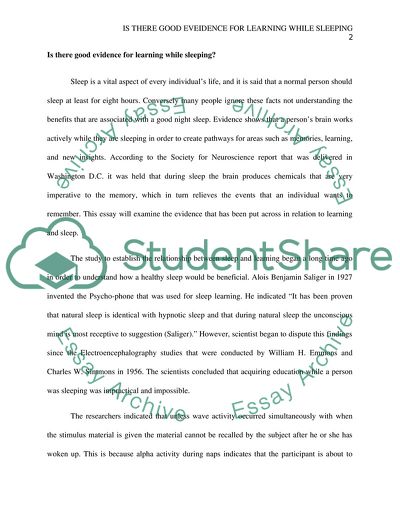Cite this document
(Is There Good Evidence for Learning While Sleeping Term Paper - 4, n.d.)
Is There Good Evidence for Learning While Sleeping Term Paper - 4. Retrieved from https://studentshare.org/psychology/1859878-assignment-1
Is There Good Evidence for Learning While Sleeping Term Paper - 4. Retrieved from https://studentshare.org/psychology/1859878-assignment-1
(Is There Good Evidence for Learning While Sleeping Term Paper - 4)
Is There Good Evidence for Learning While Sleeping Term Paper - 4. https://studentshare.org/psychology/1859878-assignment-1.
Is There Good Evidence for Learning While Sleeping Term Paper - 4. https://studentshare.org/psychology/1859878-assignment-1.
“Is There Good Evidence for Learning While Sleeping Term Paper - 4”. https://studentshare.org/psychology/1859878-assignment-1.


